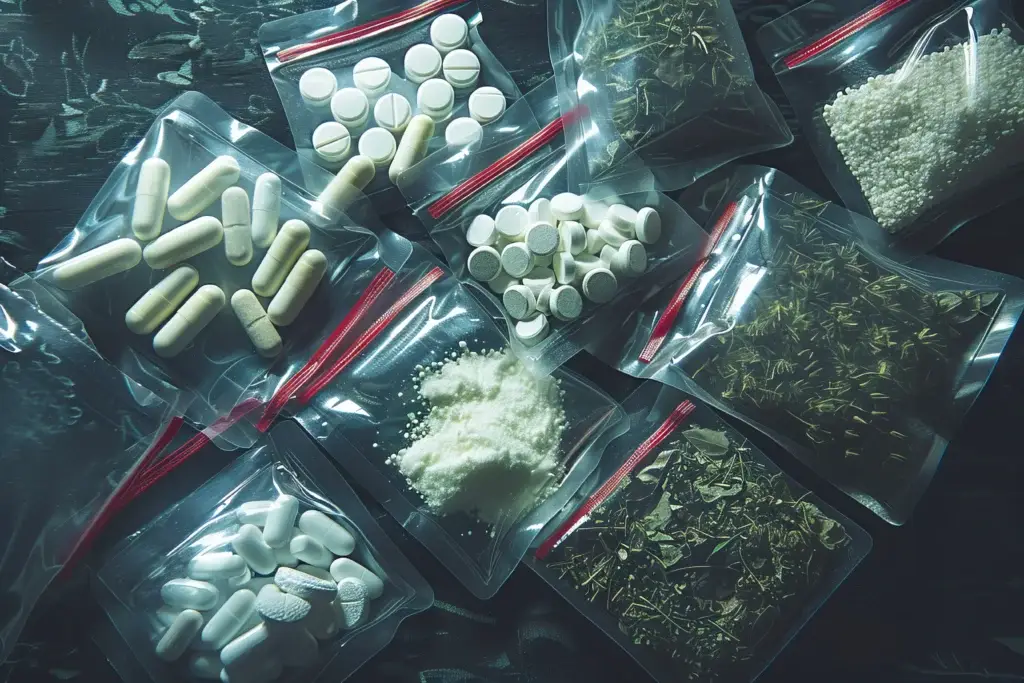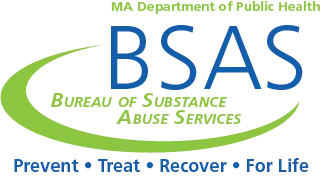Substance Misuse in Massachusetts: An Overview of the 2023 Statistics
Substance misuse in Massachusetts has long been a critical concern, and this problem continues to impact communities on a grand scale. The state has seen fluctuating trends over the years, and much of this has been influenced by numerous factors. In 2023, the state continued to battle high rates of substance misuse, and opioids have remained at the top of the list because a considerable number of overdoses have been reported.
Opioid Crisis Overview
The opioid crisis remains one of the most pressing issues in Massachusetts. Despite efforts to curb opioid misuse, the state continues to experience high rates of opioid-related overdoses and deaths. In the first quarter of 2023, 515 overdose deaths occurred due to opioids, and these were the statistics that could be confirmed with an available toxicology screening. The rate of overdoses continues to increase 3% each year.
Efforts to combat the opioid crisis in Massachusetts include a multipronged approach. Law enforcement and healthcare professionals are working in tandem with one another to save lives. State health officials have implemented public awareness campaigns to educate residents about the dangers of opioid misuse along with the signs of overdose, and on the front lines of these efforts is the state attorney general’s office. These initiatives are designed to reduce stigma and encourage those struggling with addiction to seek help.
Access to treatment is a critical component in addressing the opioid crisis. Massachusetts has increased funding for substance use disorder treatment programs. Among these are medication-assisted treatment (MAT) options such as methadone, buprenorphine and naltrexone. These treatments have a high success rate in helping individuals manage opioid dependence, and they help reduce the risk of relapse and overdose. State officials plan to expand these efforts to reach more people who need help.
Law enforcement agencies in Massachusetts are also playing a critical role in addressing the opioid crisis. Police departments across the state have been trained to administer naloxone, which is a well-known life-saving medication that can reverse opioid overdoses. Additionally, other programs like drug courts and diversion programs provide alternatives to incarceration for individuals with substance use disorders to promote treatment and rehabilitation over punishment. Individuals who are enrolled in such programs are heavily supervised, and they are expected to complete a course of mandatory treatment. Drug tests occur at random, and the progress of individuals is monitored by treatment providers and the probation officer. These courts collaborate with providers to provide much-needed treatment. The goal of such programs is to reduce the instances of relapse and support long-term recovery.
Fentanyl’s Impact
Fentanyl, a potent synthetic opioid, has significantly contributed to the opioid crisis in Massachusetts. In 2023, fentanyl was involved in most opioid-related overdose deaths in the state. Because the presence of fentanyl is so pervasive in the drug supply, this makes it a serious threat to public health.
The dangerous nature of fentanyl lies in its extreme potency. Fentanyl is estimated to be 50 to 100 times more potent than morphine, and this makes even a small amount of the substance potentially lethal. Dealers often mix fentanyl with other substances, such as heroin or cocaine, and this often occurs without the user’s knowledge. This leads to unexpected and deadly overdoses. This practice has contributed to the sharp rise in overdose deaths in Massachusetts.
Prescription Drug Misuse
Prescription drug misuse continues to be a problem in Massachusetts. Many individuals develop substance use disorders after being prescribed opioids for pain management. In 2023, efforts to monitor and control prescription drug distribution have intensified, but misuse remains a concern. At present, 46 people are dying each day due to overdosing on prescription drugs, and two are dying daily because of opioid overdoses.
In Massachusetts, a massive portion of prescription drug misuse involves opioids such as oxycodone, hydrocodone and morphine. Data from 2023 indicates that approximately 20% of individuals who received opioid prescriptions misused them, and they either took higher doses than prescribed or used the medication in a manner not authorized by their doctors. This misuse often leads to the development of addiction and contributes to the overall substance abuse crisis in the state.
Benzodiazepines, another class of commonly misused prescription drugs, also present a significant issue. Medications such as Xanax, Valium and Ativan that are prescribed for anxiety and sleep disorders have high potential for dependence and misuse. In 2023, Massachusetts saw an increase in emergency room visits related to benzodiazepine misuse. The combination of benzodiazepines with opioids, often seen in polydrug use, poses a substantial risk of overdose along with fatalities.
Stimulants prescribed for attention deficit hyperactivity disorder (ADHD), such as Adderall and Ritalin, also contribute to the prescription drug misuse problem in Massachusetts. Reports from 2023 show a rise in nonmedical use of these stimulants, and this is particularly the case among young adults and college students who are in search of easy ways to enhance their academic performance. This misuse can lead to severe health issues, and these include cardiovascular problems and mental health disorders. The widespread availability of these medications, along with the pressure from peers and family members to perform academically, exacerbates this growing concern.
Alcohol Misuse Statistics
Alcohol remains one of the most misused substances in Massachusetts. In 2023, the state recorded high rates of alcohol-related hospitalizations and fatalities. Along with significant health risks, excessive drinking poses serious social and economic problems.
The data from 2023 reveals that approximately 25% of adults in Massachusetts reported binge drinking at least once in the past month. This behavior significantly increases the risk of alcohol-related injuries, accidents and long-term health issues. The prevalence of binge drinking among young adults aged 18 to 34 remains high.
Chronic heavy drinking also continues to be a major public health concern. In Massachusetts, about 10% of the adult population is classified as heavy drinkers, and this is defined as consuming more than 14 drinks per week for men and more than seven drinks per week for women. This level of alcohol consumption is associated with numerous chronic health conditions that include liver cirrhosis, pancreatitis and several types of cancer. The economic burden of alcohol-related healthcare costs and lost productivity is substantial.
Alcohol use disorder (AUD) affects a considerable number of residents in Massachusetts. In 2023, an estimated 8% of the adult population met the criteria for AUD, which includes a pattern of alcohol use resulting in serious impairment or distress. Despite the availability of treatment options, many individuals with AUD do not seek help due to stigma, lack of awareness or access barriers.
Marijuana Use Trends
Since the legalization of recreational marijuana in Massachusetts, the state has seen considerable changes in marijuana use trends. In 2023, the prevalence of marijuana use among adults and adolescents remained high. As more people have access to legal marijuana, usage rates have continued to rise, and this presents opportunities and challenges for public health and safety.
The rise in marijuana use has led to an increase in marijuana-related emergency room visits and hospitalizations. In 2023, Massachusetts hospitals reported over 2,000 cases involving adverse reactions to marijuana in children and teens.
While marijuana legalization has generated a considerable amount of tax revenue for the state, more must be done to protect the citizens. The Cannabis Control Commission continues to monitor and regulate the market to ensure consumer safety and prevent underage use. Continued data collection and research is needed to continue to shape policies.
Impact on Youth
Youth substance misuse is a significant concern in Massachusetts. In 2023, data showed that many adolescents engaged in the use of alcohol, marijuana and vaping products.
Racial and Ethnic Disparities
Substance misuse affects all communities, but there is notable disparities among different racial and ethnic groups in Massachusetts. In 2023, data reveals that minority populations faced more significant barriers to accessing treatment, and this includes interventions for addiction. Addressing these issues is essential to improving outcomes for everyone in the state.
Mental Health and Substance Misuse
Mental health issues and substance misuse often go hand-and-hand, and this creates complex challenges for individuals and healthcare providers. In 2023, Massachusetts continued to see high rates of co-occurring disorders. Integrating mental health and substance misuse treatment is critical to guarantee that interventions will be more effective.
Treatment and Recovery Services
Access to treatment and recovery services is vital for addressing substance misuse. In 2023, Massachusetts has expanded its range of services, including inpatient and outpatient programs, medication-assisted treatment and support groups. These services are essential for helping people overcome addiction and prevent relapse.
At Charles River Recovery in Weston, MA, we have a whole host of treatment programs to help individuals overcome substance misuse. The detoxification and stabilization programs are specifically designed to address numerous challenges.
Our center offers proven treatment methods to help individuals overcome alcohol addiction, opioid addiction and the misuse of other drugs and start their journey toward sobriety. The expert staff at Charles River Recovery understands the complexities of addiction and provides personalized care to support each client’s unique recovery needs.
The detoxification and clinical stabilization services at Charles River Recovery provide 24-hour care supervised by medical and clinical professionals. This constant supervision ensures that clients receive the necessary support and medical attention during the early stages of their recovery. Our center’s state-of-the-art facility houses 110 recovery beds, and it provides a safe and comfortable environment for clients to focus on their rehabilitation. Our dedicated team of addiction specialists implements a variety of therapeutic approaches to help individuals break free from their alcohol or drug dependency and build a foundation for lasting recovery.
Community Initiatives and Support
Community involvement plays a critical role in combating substance misuse. In 2023, the various communities in Massachusetts have launched a wide range of initiatives to support those impacted by this problem. These efforts include educational programs, community outreach and support networks.
Future Outlook
The future of substance misuse in Massachusetts depends on continued efforts on the part of officials and their communities. In 2023, the state focused on enhancing prevention, treatment and recovery services, and this continues to happen now. By addressing the root causes of substance misuse and promoting healthy communities, the citizens of Massachusetts will continue their goal to reduce the rates of substance misuse in their midst.
Charles River Recovery’s commitment to individualized care sets us apart as a premier destination for addiction treatment. Our diverse team of addiction experts collaborates closely with each client to develop an individualized treatment plan that addresses their specific needs and goals. By offering comprehensive support and employing evidence-based treatment methods, Charles River Recovery has a goal to help individuals struggling with substance misuse achieve long-term sobriety and improve their overall quality of life. If you or a loved one is struggling with addiction, do not hesitate to give us a call for help and support.






